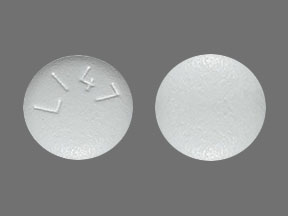
Eq Allergy Relief Nasal Decong Coupons & Savings Card – Discount Prices from $18.16
Brand for: Cetirizine-pseudoephedrine er
This medication is designed to alleviate allergy symptoms such as watery eyes, a runny or stuffy nose, itchy eyes or nose, and sneezing. It combines two active ingredients: cetirizine and pseudoephedrine. Cetirizine is an antihistamine that works by blocking histamine, a natural substance produced by the body during allergic reactions. Pseudoephedrine is a decongestant that relieves nasal congestion by narrowing the blood vessels in the nose, reducing swelling. It is important to note that this medication is not recommended for children under 12 years old due to the high content of pseudoephedrine.
Our Eq Allergy Relief Nasal Decong coupons are free to use. You can print the coupon, email it to yourself, or receive the Eq Allergy Relief Nasal Decong coupon via text message. To get your free discount, show the pharmacist your Eq Allergy Relief Nasal Decong savings card which has the discounted coupon price. Use our filters below to edit the prescription box to match your needs. The Eq Allergy Relief Nasal Decong prices will update based on your prescription needs. Above our Eq Allergy Relief Nasal Decong coupons, you can change the location to see pharmacy prices in other areas. Our prescription discount card will update online with the specific pharmacy costs associated with your edits. Be sure to text, email, or print the Eq Allergy Relief Nasal Decong savings card code that you need after editing the prescription box and location field. Show the discount card to your pharmacist before paying.
My prescription
Edit
5-120MG, Cetirizine-pseudoephedrine ER (60 Tablet Extended Release 12 Hours)
Select pharmacy

Walgreens
$18.16
COUPON PRICE
Albertsons
$39.40
COUPON PRICE
Walmart
$53.04
COUPON PRICEEq Allergy Relief Nasal Decong savings card
Show this card to your pharmacist
Walgreens
$18.16
BIN
ID
PCN
GRP
015995
LHKPX739333
GDC
DR33
Powered by
This medication is designed to alleviate allergy symptoms such as watery eyes, a runny or stuffy nose, itchy eyes or nose, and sneezing. It combines two active ingredients: cetirizine and pseudoephedrine. Cetirizine is an antihistamine that works by blocking histamine, a natural substance produced by the body during allergic reactions. Pseudoephedrine is a decongestant that relieves nasal congestion by narrowing the blood vessels in the nose, reducing swelling. It is important to note that this medication is not recommended for children under 12 years old due to the high content of pseudoephedrine.
Our Eq Allergy Relief Nasal Decong coupons are free to use. You can print the coupon, email it to yourself, or receive the Eq Allergy Relief Nasal Decong coupon via text message. To get your free discount, show the pharmacist your Eq Allergy Relief Nasal Decong savings card which has the discounted coupon price. Use our filters below to edit the prescription box to match your needs. The Eq Allergy Relief Nasal Decong prices will update based on your prescription needs. Above our Eq Allergy Relief Nasal Decong coupons, you can change the location to see pharmacy prices in other areas. Our prescription discount card will update online with the specific pharmacy costs associated with your edits. Be sure to text, email, or print the Eq Allergy Relief Nasal Decong savings card code that you need after editing the prescription box and location field. Show the discount card to your pharmacist before paying.
More prescriptions for nasal congestion
coupons from$81.31Save 77%
coupons from$147.88Save 89%
coupons from$12.08Save 76%
coupons from$35.58Save 39%
coupons from$23.08Save 69%
coupons from$14.36Save 63%
coupons from$286.68Save 73%
coupons from$41.10Save 85%
More prescriptions for nasal congestion
Triamcinolone Save 77%coupons from $81.31
Cutivate Save 89%coupons from $147.88
Pseudoeph-bromphen-dm Save 76%coupons from $12.08
Eq Allergy Relief D 12 Hour Save 39%coupons from $35.58
Nasonex 24hr Save 69%coupons from $23.08
Dexbrompheniramine-phenyleph Save 63%coupons from $14.36
Omnaris Save 73%coupons from $286.68
Beclomethasone Save 85%coupons from $41.10
Eq Allergy Relief Nasal Decong (Cetirizine-pseudoephedrine ER) dosage forms
Use our Eq Allergy Relief Nasal Decong (Cetirizine-pseudoephedrine ER) 5-120MG coupon with prices from $42.30 for 60 Tablet Extended Release 12 Hours. You can also use our Eq Allergy Relief Nasal Decong (Cetirizine-pseudoephedrine ER) 5-120MG coupon with prices from $15.66 for 12 Tablet Extended Release 12 Hours. We have a Eq Allergy Relief Nasal Decong (Cetirizine-pseudoephedrine ER) 5-120MG coupon with prices from $22.32 for 24 Tablet Extended Release 12 Hours.
Dosage Quantity Price from Per unit 5-120MG 60 Tablet Extended Release 12 Hours $42.30 $0.70 5-120MG 12 Tablet Extended Release 12 Hours $15.66 $1.30 5-120MG 24 Tablet Extended Release 12 Hours $22.32 $0.93
| Dosage | Quantity | Price from | Per unit |
|---|---|---|---|
| 5-120MG | 60 Tablet Extended Release 12 Hours | $42.30 | $0.70 |
| 5-120MG | 12 Tablet Extended Release 12 Hours | $15.66 | $1.30 |
| 5-120MG | 24 Tablet Extended Release 12 Hours | $22.32 | $0.93 |
Eq Allergy Relief Nasal Decong FAQs
Does Equate allergy relief have a decongestant?
Equate Allergy Relief typically contains antihistamines, such as loratadine or cetirizine, but it does not include a decongestant. If a decongestant is needed, one should look for a product specifically labeled as containing a decongestant or consider using a separate decongestant medication.
Using the SaveHealth discount card, what is the price of Eq Allergy Relief Nasal Decong without insurance?
Using the SaveHealth discount card, the price of Eq Allergy Relief Nasal Decong without insurance is $18.16.
What is the price of Eq Allergy Relief Nasal Decong at Walgreens?
The price of Eq Allergy Relief Nasal Decong at Walgreens is $18.16.
What is the price of Eq Allergy Relief Nasal Decong at Walmart?
The price of Eq Allergy Relief Nasal Decong at Walmart is $53.04.
